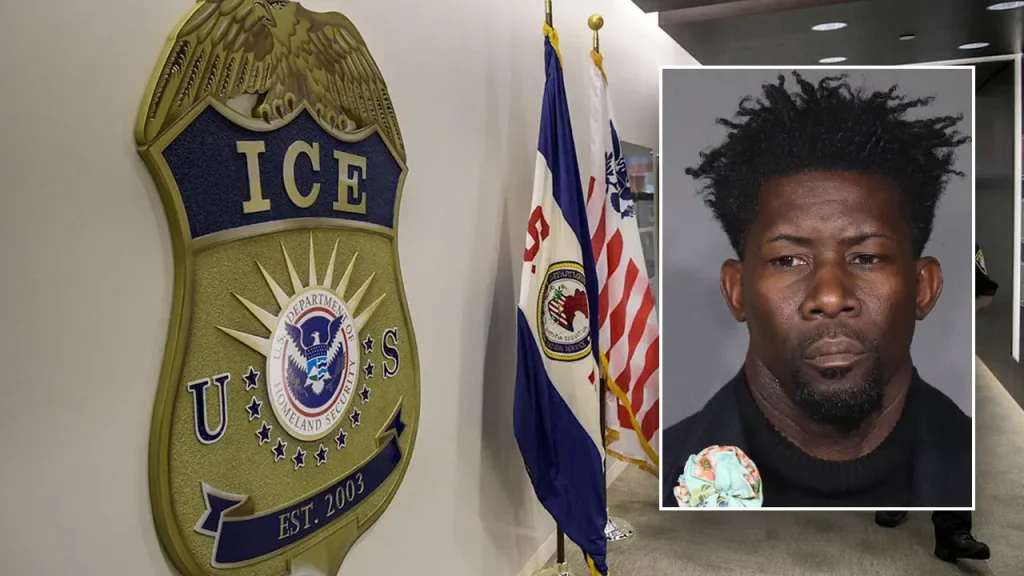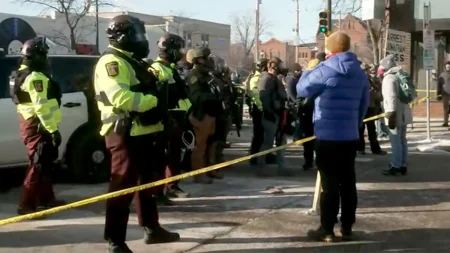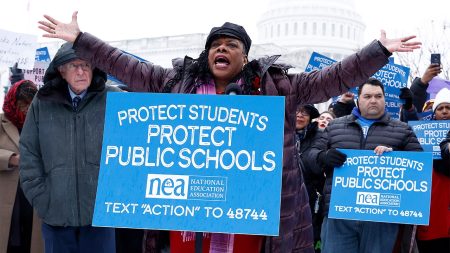A School Leader’s Fall from Grace: The Ian Roberts Immigration Controversy
In a dramatic turn of events that has shaken Iowa’s largest school district, Superintendent Ian Roberts has resigned from his position at Des Moines Public Schools following his arrest by federal immigration authorities. The announcement came Tuesday through his attorneys during a news conference, marking the end of Roberts’ brief but controversial tenure leading a district of over 30,000 students and nearly 5,000 employees. Roberts, who was hired just last year in July 2023, found himself at the center of a complex immigration controversy when U.S. Immigration and Customs Enforcement (ICE) detained him after a brief car chase last week. According to federal authorities, Roberts was taken into custody because he had “a final order of removal and no work authorization,” revealing a complicated immigration history that would ultimately prove career-ending.
The details of Roberts’ immigration status paint a picture of missed opportunities and potential misunderstandings. Having originally entered the United States from Guyana, Roberts last came to America through New York on August 30, 1999, on an F-1 student visa to attend St. John’s University. However, his legal ability to work in the U.S. ended when his employment authorization card expired in 2020, according to homeland security officials. The situation was further complicated by weapon possession charges from February 2020 and a final removal order issued by an immigration judge in May 2024. Adding to these concerns, authorities reported finding a loaded handgun in Roberts’ vehicle during his arrest. Despite these serious issues, Roberts’ attorney, Alfredo Parrish, claimed that a previous lawyer in Texas had informed Roberts that his immigration case had been “closed successfully,” suggesting possible misinformation or miscommunication about his legal status.
The fallout from Roberts’ arrest was swift and decisive. The Iowa Board of Educational Examiners revoked his educational license on Sunday, effectively ending his ability to serve as an educational administrator in the state. The Des Moines school board followed by placing Roberts on unpaid leave during an emergency meeting Monday, and was scheduled to meet Tuesday night to formally consider his termination or resignation. Phil Roeder, the district’s director of communications and public affairs, clarified that “a resignation for someone under contract does not take effect until the board gives its approval,” highlighting the procedural steps still needed to formalize Roberts’ departure. Despite the serious circumstances, Parrish told reporters that Roberts’ “spirits are high” and described him as having been a “tremendous asset” to the community and students during his tenure, suggesting a disconnect between Roberts’ professional contributions and his legal troubles.
Amidst this individual controversy, the school district faces additional scrutiny as the Justice Department’s Civil Rights Division announced the launch of an investigation into the district’s hiring practices. The probe aims to determine whether Des Moines Public Schools discriminates against job candidates based on color, race, or national origin. Assistant Attorney General Harmeet Dhillon strongly criticized what she described as “DEI initiatives and race-based hiring preferences,” stating they “violate federal anti-discrimination laws and undermine educational priorities.” The DOJ specifically cited the district’s stated goal of matching teaching and learning staff demographics to student population, as well as programs like the “3D Coalition” project for recruiting “aspiring minority teachers.” This federal investigation adds another layer of institutional challenge to a district already reeling from its leadership crisis.
The Roberts case has drawn significant political attention, with U.S. Representative Zach Nunn, a Republican representing the Des Moines area, publicly questioning how Roberts was hired given his legal status. Through a Freedom of Information Act request, Nunn obtained and released a redacted excerpt of Roberts’ May 2024 removal order, which indicated Roberts had failed to appear at a removal hearing. Nunn’s statement reflected broader concerns about vetting processes for educational leaders: “It is unacceptable that someone under a final order of deportation and without legal work authorization was allowed to lead Iowa’s largest public school system. Every parent should be able to trust that school leaders are fully vetted, legally employed and held to the highest standards of accountability.” This political dimension highlights how Roberts’ individual situation has evolved into a broader debate about immigration enforcement, employment verification, and public trust in educational institutions.
As the situation continues to unfold, Roberts’ legal team has indicated they will file a motion to reopen his immigration case, suggesting they believe there may be legitimate grounds to challenge his removal order. Attorney Alfredo Parrish emphasized their commitment to “leaving no stone unturned” in addressing Roberts’ legal challenges. However, the practical reality is that Roberts’ educational career in Des Moines appears to be over, regardless of the outcome of any immigration proceedings. The abrupt end to his superintendency raises important questions about background check procedures for high-profile educational positions, the responsibilities of individuals to maintain proper work authorization, and the potential consequences when immigration status issues intersect with public service roles. For the Des Moines Public Schools community—students, parents, teachers, and staff—the priority now shifts to maintaining stability and identifying new leadership during this unexpected transition.











